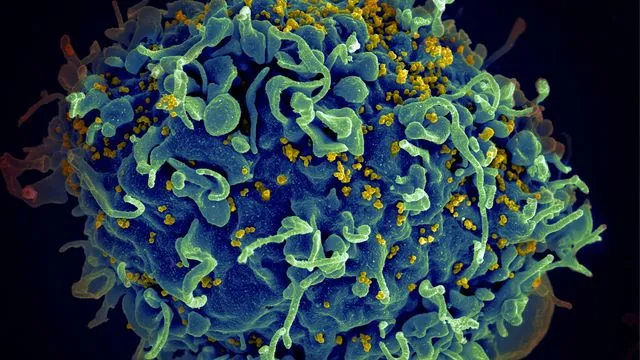
Breaking Ground: Tackling Worm Infections Could Cut HIV Rates in Tanzania!
2025-04-14
Author: Mei
Revolutionary Discovery: Worms and HIV Connection Uncovered!
A groundbreaking collaboration between the Institute of Infectious Diseases and Tropical Medicine at LMU University Hospital Munich and the National Institute for Medical Research in Tanzania has revealed a shocking link between worm infections and HIV risk. Researchers have shown that infection with the Wuchereria bancrofti worm, responsible for lymphatic filariasis, significantly increases the likelihood of contracting HIV—by two to three times, to be precise!
What is Lymphatic Filariasis?
Wuchereria bancrofti is a parasitic nematode prevalent in tropical regions, and it wreaks havoc on the lymphatic system, sometimes leading to disfigurement and severe health issues. Despite its impact, this disease has long been overlooked.
The Transformative Study: EMINI to RHINO!
From 2007 to 2011, the EMINI study explored the consequences of W. bancrofti infection among Tanzanians, highlighting its staggering effects on HIV infection rates. Fast forward to the RHINO study, launched in 2019, where researchers seized the moment to measure the effects of a national anti-worm treatment program on HIV levels.
Dramatic Results: Reduced HIV Incidence!
The findings were nothing short of remarkable! Among those cured of W. bancrofti, HIV incidence plummeted by approximately 60% between 2011 and 2019. Statistically significant results indicate that dealing with these worm infections could play a vital role in combating HIV.
Expert Insights: The Need for Ongoing Research!
Professor Inge Kroidl from LMU emphasized that these findings affirm the critical link between W. bancrofti and HIV rates. Meanwhile, Professor Michael Hoelscher stated, "We are still digging deeper to understand the immune mechanisms that allow these worms to increase HIV susceptibility!"
Community Power: A Key to Success!
Dr. Mkunde Chachage from NIMR stressed the importance of community involvement in health initiatives, which proves essential in addressing both HIV and lymphatic filariasis. Prof. Said Aboud echoed these sentiments, lauding a collaborative effort that spans nearly two decades!
Looking Ahead: New Frontiers in HIV Prevention!
With findings that could reshape health policies in affected regions, study co-author Prof. Achim Hörauf noted the potential for new strategies in preventing HIV. Ongoing research aims to improve therapies against lymphatic filariasis, paving the way for better health outcomes.
In Conclusion: A New Era in HIV Combat?
This groundbreaking research not only shines a light on the neglected interplay between parasitic infections and HIV but also lays the groundwork for innovative health strategies. As scientists continue to explore this connection, the prospects for reducing HIV incidence in Tanzania—and potentially beyond—are looking brighter than ever!


 Brasil (PT)
Brasil (PT)
 Canada (EN)
Canada (EN)
 Chile (ES)
Chile (ES)
 Česko (CS)
Česko (CS)
 대한민국 (KO)
대한민국 (KO)
 España (ES)
España (ES)
 France (FR)
France (FR)
 Hong Kong (EN)
Hong Kong (EN)
 Italia (IT)
Italia (IT)
 日本 (JA)
日本 (JA)
 Magyarország (HU)
Magyarország (HU)
 Norge (NO)
Norge (NO)
 Polska (PL)
Polska (PL)
 Schweiz (DE)
Schweiz (DE)
 Singapore (EN)
Singapore (EN)
 Sverige (SV)
Sverige (SV)
 Suomi (FI)
Suomi (FI)
 Türkiye (TR)
Türkiye (TR)
 الإمارات العربية المتحدة (AR)
الإمارات العربية المتحدة (AR)